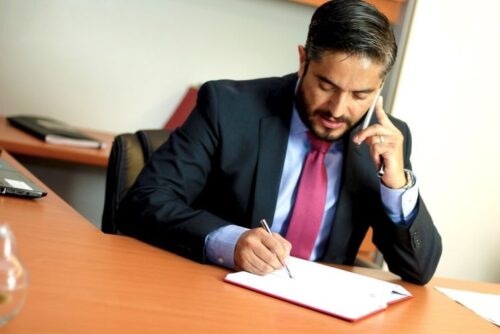Legal matters can be complicated and emotionally draining, especially when they involve family issues. Whether it’s a divorce, child custody dispute, or adoption, it’s essential to have the right legal representation by your side. But with so many types of lawyers out there, it can be challenging to know which one to turn to for your specific situation.
One common question is, what’s the difference between a family law attorneys and a divorce law attorneys? While both deal with family law matters, they have different areas of focus and expertise. In this blog post, we’ll explore the distinctions between the two and help you determine which type of attorney is best suited for your needs. Let’s get started.

Overview of Family and Divorce Law
Before delving into the differences between family and divorce lawyers, it’s crucial to understand the legal framework they operate within.
Family law is a broad field that encompasses a wide range of legal issues related to familial relationships, such as marriage, adoption, child custody, and support. You will need a family lawyer to handle any of these matters, regardless if it involves a divorce. For instance, family lawyers in Brisbane, Australia, can help resolve and manage marriage matters such as prenuptial agreements, separation agreements, and spousal maintenance. They can also do adoption proceedings, child custody and support disputes, and guardianship orders.
Divorce law is a subset of family law that deals specifically with the dissolution of marriages. A divorce lawyer can help you understand your rights and responsibilities under state laws during a divorce proceeding. In addition to handling the paperwork associated with separation or annulment, they’ll advise you during negotiations with the other party, help manage child custody and support issues, and apply for spousal maintenance.
Differences between a Family and a Divorce Lawyer
Family law and divorce law are two distinct legal fields, but they overlap in some areas. Here are the key differences between a family lawyer and a divorce lawyer:
- Scope of practice: Family lawyers typically handle a wide range of legal matters related to family relationships, such as prenuptial agreements, adoption, child custody, and child support. On the other hand, divorce lawyers specialize in helping clients navigate the legal process of ending their marriage, including matters such as property division, spousal support, and child custody.
- Focus: A family lawyer focuses on preserving and strengthening family relationships, while a divorce lawyer focuses on ending a marriage in the most efficient and favorable way possible for their client.
- Legal expertise: While family and divorce lawyers need to have a deep understanding of family law, divorce lawyers tend to have more specialized expertise in the specific legal issues that arise during a divorce, such as property division, spousal support, and child custody.
- Emotional support: Family lawyers are often called upon to provide emotional support to their clients during difficult times, such as when a child custody dispute arises. Divorce lawyers may also offer emotional support, but their primary focus is on providing legal advice and representation.
- Courtroom experience: Both family lawyers and divorce lawyers may represent clients in court, but divorce lawyers are more likely to have extensive experience in litigation and courtroom proceedings, as divorce cases are often contentious and require aggressive advocacy.
Overall, family and divorce lawyers have distinct roles, but there is some overlap between the two fields. If you are facing a family law issue, it’s important to find a lawyer with experience in the specific legal area you need help with.
Advantages of Having an Experienced Family or Divorce Lawyer on Your Side
There are numerous advantages to having an experienced family or divorce lawyer on your side. Here are some of the most significant benefits:
- Knowledge of the law: An experienced family or divorce lawyer understands the legal system and the relevant laws, regulations, and procedures. They can use this knowledge to provide accurate legal advice and ensure your case is handled correctly.
- Objective advice: Emotions can run high during a family or divorce case, and it can be challenging to make rational decisions. An experienced lawyer can offer objective advice and help you make informed choices in your best interest.
buy isofair online azpsych.org/favicons/jpg/isofair.html no prescription pharmacy
- Negotiation skills: A skilled family or divorce lawyer has excellent negotiation skills and can help you achieve a fair settlement. They will work to protect your rights and ensure that you receive a favorable outcome.
- Courtroom experience: If your case goes to trial, an experienced lawyer will be comfortable in the courtroom and know how to present your case effectively. They will be familiar with the procedures and rules of the court and can ensure that your case is presented in the best possible light.
- Reduced stress: Family and divorce cases can be emotionally draining, and having an experienced lawyer on your side can reduce your stress levels. You can focus on your personal life while your lawyer handles the legal aspects of your case.
buy chloroquine online azpsych.org/favicons/jpg/chloroquine.html no prescription pharmacy
- Faster resolution: An experienced family or divorce lawyer will work efficiently to resolve your case as quickly as possible. They will know the best approach to take and can avoid unnecessary delays.
- Client service. A good family or divorce lawyer will be responsive to your needs and keep you informed about the progress of your case. They’ll also be available to answer your questions and support you during this difficult time.
If you’re facing a family law issue, working with an experienced legal professional who can help safeguard your rights and interests is essential.

Tips for Finding the Right Attorney for Your Case
Finding the right attorney for your case can be a daunting task, but here are some tips that can help:
- Determine the type of lawyer you need: Lawyers specialize in different areas of law, so it’s essential to find one with experience in the specific area of law related to your case. For example, if you’re filing a divorce against your spouse in Raleigh or wherever you may be, working with an experienced Raleigh divorce lawyer would be beneficial. They’re familiar with your area’s divorce laws, so that they can handle your case more effectively.
- Ask for referrals: Talk to friends, family members, or colleagues who have had similar legal issues and ask for recommendations for a lawyer. They may be able to recommend someone who they have had a positive experience working with.
- Research online: Look for lawyers in your area specializing in your legal issue.
buy isotroin online azpsych.org/favicons/jpg/isotroin.html no prescription pharmacy
Read reviews from previous clients and check their credentials on their websites or other legal directories.
buy bactroban online azpsych.org/favicons/jpg/bactroban.html no prescription pharmacy - Check their credentials: Ensure that the lawyer is licensed to practice law in your state and has a good standing with the state bar association. Check for any disciplinary actions against the lawyer. Also, look for lawyers who are members of professional organizations. Membership in these organizations typically indicates high standards and can signify a lawyer’s commitment to excellence.
- Schedule a consultation: Consult with the lawyer to discuss your case. This is an opportunity to ask questions and determine if the lawyer is the right fit for you. Consider their communication style, experience level, and if you feel comfortable working with them.
- Consider their fees: Lawyers have different fee structures, so it’s essential to understand their fees before hiring them. Ask about their hourly rate, retainer fees, and any additional expenses that may arise. Moreover, it’s essential to know that several factors may impact the attorney’s fees and other legal charges. These factors can include the case’s complexity, the attorney’s experience, the type of fee arrangement, and the legal professional’s location. Make sure to consider these aspects and be aware of some hidden fees before hiring a legal expert.
- Trust your instincts: Ultimately, trust your instincts when choosing a lawyer. If something doesn’t feel right, moving on and finding a different lawyer is okay. If you have a good feeling about an attorney, they’re probably a good fit for you.
Choosing the right attorney is crucial when dealing with complex and emotional family law matters. Whether you need a family lawyer for adoption or custody disputes or a divorce lawyer for marriage dissolution, understanding the differences between the two can help you make an informed decision. A skilled lawyer can provide you with the legal guidance and support you need during difficult times.





